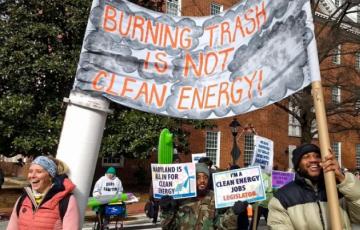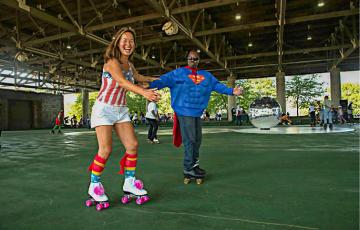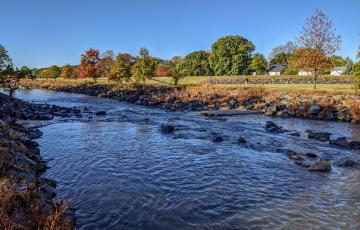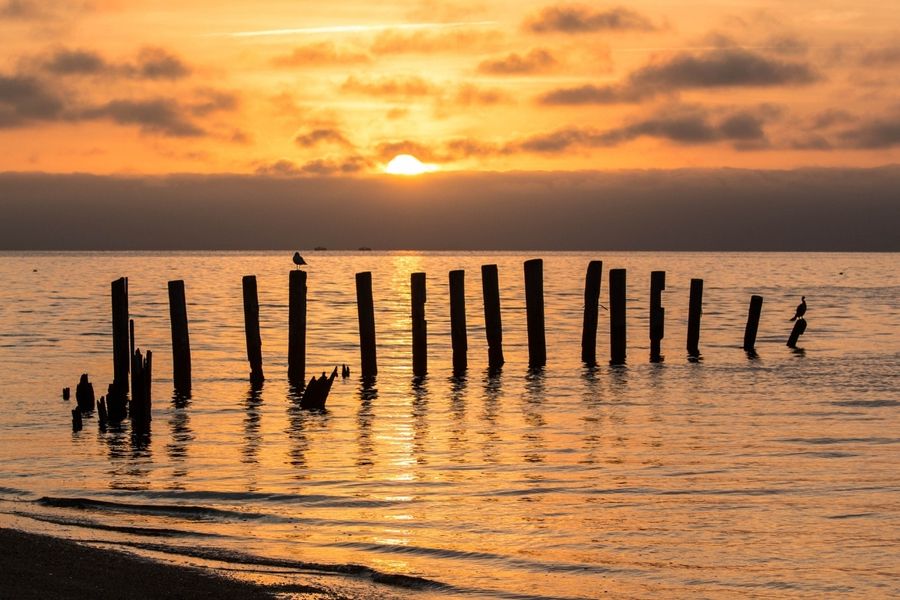In This Issue
- Mid-Atlantic Environmental Justice Coalition
- Maryland: Reclaim Renewable Energy Coalition
- Maryland: 2022 Legislative Preview
- DC: Celebrating Anacostia Park
- DC: Discover Your River and Park!
- Download a PDF of this issue
Mid-Atlantic Environmental Justice Coalition
Clean Water Fund is a founding member of the Mid-Atlantic Environmental Justice Coalition, newly formed with tables working in Delaware, DC, Maryland, and Virginia. For too many years, even while legislation cleaning up the Bay and fighting greenhouse gas emissions have met with success, bills coming from grassroots public health and environmental justice fights have been met with powerful opposition and far too few victories. By working within states and across the region, the Coalition can leverage a network of resources for policies that will direct investment and reduce pollution, lifting up the entire region.
For its first year, many of the tables are focused on President Biden’s Justice 40 initiative. This directive aims to invest 40% of the overall benefits from Federal investments in climate and clean energy to disadvantaged communities — often those who have suffered the brunt of the current dirty energy system. But which communities will receive these benefits, and how will decisions on specific projects be made?
This initiative aims to proactively define Green Justice Zones, those especially vulnerable to receiving too much pollution and too little investment. These zones would receive significant investment from the state government — with residents voting on how that money would be spent. And when a polluter wants to build a new facility in the neighborhood, residents would vote to decide whether or not that’s allowed, as well. With this and many more equity-focused bills coming, we’re excited to help build the Mid-Atlantic Environmental Justice Coalition into a powerful force.
Reclaim Renewable Energy Coalition
You have heard Clean Water Action say it before, burning trash is not clean energy. But did you know that as Maryland ratepayers you are also paying for renewable energy subsidies to burn chicken litter, create and burn methane gas, and burn other miscellaneous materials? Burning stuff pollutes and is not a climate solution. Clean Water Action has been working for years to end “renewable energy” subsidies for trash incineration, and the organization is excited to be part of a growing coalition of zero waste proponents, agriculture advocates, climate leaders, and more working to #ReclaimRenewable. Let’s stop throwing our ratepayer dollars at burning things in the name of saving the climate and make our Renewable Portfolio a truly green, clean, climate solution. Contact your representatives today!
Maryland
Legislative Preview 2022
Legislative session is once again right around the corner, and Clean Water Action is preparing for the last legislative session before the midterm elections! Election years are always exciting and wild, and already the General Assembly is experiencing a significant shuffle as elected officials announce that they are running for new positions or retiring. Amidst all of the campaigning and electioneering, Clean Water will continue to campaign for environmental policies that protect public health. In addition to the focusing on the establishment of Green Justice Zones and Reclaim Renewable Energy, here are some of the organization’s top priorities:
School Compost Support: Anyone who has watched a child eat knows how much food waste is generated. In fact, as much as 90% of what goes into the trash in a school cafeteria could be composted, recycled, or poured down the drain! This year, we’ll be working to create a grant program supporting Maryland schools that want to create in-school composting programs. There are successful models of this across the state, including in Frederick County where the Lunch out of Landfills program has grown from parent and student volunteers to an official county program. The legislation would also support share tables, safely distributing uneaten and untouched food to the kids and staff who will eat it.
Septic System Standards: Last year, Clean Water Action helped pass legislation to create a licensing system for septic property transfer inspectors, the people who tell you whether or not the septic system is properly functioning when you purchase a new home. But Maryland still has some pretty significant outstanding issues with septic systems. Almost every similar industry has a board or standardized, state licensing or certification — but the septic industry does not. Local Health Departments are challenged to inspect systems that may or may not have been designed, installed, or maintained appropriately; at the end of the day, the homeowner and the environment are the ones that suffer. There’s also no record of where all of the septic systems are in Maryland. While every county maintains records, not all counties keep those records permanently, and there’s no standard for accessing the records. A centralized database would enable the state to understand the lay of the land for septic systems: where are they, how old are they, and whether or not there are hotspots of septic failure that may need to be addressed through repair, replacement, or targeted education.
Standardized Data Collection: COVID-19 has highlighted problems in many facets of our lives, especially in many farm and food system workplaces. At least one solution can be simple: standardized data collection. Maryland does not use the nationally standardized occupation or industry codes when they collect information about infections, vaccinations, or health outcomes. We’re working to fix that, which will allow the state to target public health interventions and identify outbreaks before they become a significant problem.
As the planet continues to warm, adaptation to climate change becomes increasingly necessary. Warmer temperatures pose a danger to people, especially residents of urban heat islands and people who work outside. Maryland is currently in the process of drafting an employment heat stress standard, and Clean Water Action is working with occupational health professionals and farmworker groups to ask for a standard that protects farmworkers, especially as they deal with short windows of time available for picking crops.
Keeping the Heat on Legislators: In March 2020, in the weeks before the pandemic hit, Clean Water Action spent a lot of time in Annapolis speaking with legislators — and sometimes following them with models of trash incinerators! Things look a lot different now, but we’re eager to keep up the pressure in Annapolis in the 2022 legislative session.
District of Columbia
Celebrating Anacostia Park
Hundreds of people attended three “Late Skate’’ events Clean Water Fund sponsored at the Anacostia Park Skating Pavilion this past September and October. These free community celebrations were hosted by the National Park Service (NPS) with support from the Anacostia Parks and Community Collaborative (APACC) and the Friends of Anacostia Park.
Each event followed strict COVID-19 safety guidelines including mask requirements, and featured local DJs and radio personalities, free roller skate rentals, field games, face painting, free family portraits.
The events are part of a shared effort between the NPS and local leaders to engage residents of Ward 7 and Ward 8 in meaningful events and programming.
Since 2019,Clean Water has worked with members of APACC and NPS to coordinate meaningful engagement. Through these collaborative events and programs, diverse organizations are growing their capacity to meaningfully engage people through programming in Anacostia Park that builds relationships with park visitors and prototype engagement activities that connect with “hard to reach” communities in Ward 7 and Ward 8 of the District of Columbia. These activities have strengthened alliances between community organizations, schools, non-profits, businesses, and other stakeholders to address local challenges and accelerate partnerships that positively impact and enhance both community and park health.
Anacostia Park and other open spaces in Ward 7 and Ward 8 of the District can play a major role in improving our communities. Clean Water believes that the Anacostia River and its waterfront parks, as well as our other neighborhood parks, can provide immense benefits to residents if improved in the right way.
Parks can improve public health, bring communities closer together and improve economic outcomes for residents. The improvement of parks can also be tied to neighborhood plans for equitable development, which means ensuring that low-income residents who have lived in the area for a long time won’t be displaced as parks (and the rest of the neighborhood) are improved.
Anacostia Park can provide more than just space for recreation: it can provide green jobs for neighbors, outdoor education classrooms and programs for children and youth, better access to the Anacostia River, spaces for meditation and healing, and much, much more.
But no single agency is “in charge” of the river to make sure that the corridor is designed to not only support clean water and wildlife, but also to improve the quality of life of Ward 7 and 8 residents. Many different organizations actively work to improve one or more aspects of the corridor.
District of Columbia
Discover your Anacostia Parks & River
The Anacostia River and its parks are part of a big, complex network of spaces managed by many different government agencies and with many different types of neighborhood contexts.
The Anacostia Parks & Community Collaborative (APACC) is a network of organizations committed to maximizing the value of public spaces along the Anacostia River to residents of Ward 7 and 8 in the District of Columbia. Clean Water serves as the fiscal agent at the direction of the APACC steering committee, including Vaughn Perry (11th Street Bridge Park), Philip Pannell (The Anacostia Coordinating Council), Daniel Burs (DC Appleseed Center for Law & Justice), Akiima Price (Friends of Anacostia Park), and Brenda Richardson (Friends of Oxon Run).
Members include both environmental advocates as well as community groups that share a common vision of a Anacostia River corridor that supports the social, mental, physical, spiritual and economic health of Ward 7 and Ward 8 residents.
The effects of climate change need to be addressed in a dedicated manner and cannot be solved by any one agency, a single discipline or any one sector of the economy. To help us tackle these issues, APACC invites agency staff and local leaders to discuss solutions and strategies with members of the community.
View the October 15, 2001 virtual panel discussion on climate, equity, flooding, and heat with Brenda Richardson and guest speaker Tommy Wells (Department of Energy and Environment) here.
Learn more about the shared policy agenda that serves to inform decision-makers about our collective priorities for the Anacostia River Corridor here.
The Collaborative is in part supported by the Chesapeake Bay Funders Network which provides support to watershed organizations through grants, one-on-one training, networking, and tailored technical assistance to increase the operational effectiveness of these organizations.
Learn more about how we work with local community leaders to bring those many voices together here.
Visit Your Anacostia Park. Did you know that the waterfront along the Anacostia River in Washington, DC, includes more than 1,100 acres of public open space? That’s larger than Central Park in New York!
Whether you spread out a blanket in the grass or use the park’s picnic tables and grills, cooking out or picnicking in Anacostia Park is a fun way to spend some time with friends and family along the Anacostia River. Download the map here and find out how to take advantage of this resource in your backyard.




